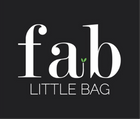
The Three P's Rule: What You Should Actually Flush Down the Toilet
Short answer: Only pee, poo, and (toilet) paper.
Your toilet isn't a rubbish bin. It's a carefully designed system that can only handle three things: pee, poo, and toilet paper. Everything else—yes, even things labeled "flushable"—risks damaging your plumbing, clogging sewers, and polluting waterways.
Let's talk about why the three P's rule exists, what happens when you break it, and how to protect your pipes (and the planet).
What Are the Three P's?
The three P's are simple:
- Pee
- Poo
- Paper (toilet paper only)
That's it. Nothing else belongs in your toilet—not tampons, not pads, not wet wipes, not cotton buds, not dental floss. Just the three P's.
Why Only These Three?
They're designed to break down quickly. Toilet paper is engineered to disintegrate in water within seconds. Human waste is organic and biodegradable. Together, they move through your plumbing and sewage system without causing blockages.
Everything else? It doesn't break down fast enough—or at all.
What Happens When You Flush Other Things?
The environment pays the price. When sewage systems overflow, flushed items end up in rivers and oceans. Beaches become littered with plastic waste.
Your pipes suffer. Items like tampons, pads, and wet wipes don't dissolve. They travel through your plumbing as solid objects, getting stuck in bends and narrow sections. One flush might work, but repeated flushing builds toward disaster.
Sewage systems clog. Even if items make it past your home, they contribute to massive blockages in city sewers. Water companies spend millions clearing these preventable clogs every year.
The Most Common Culprits
Tampons and pads are among the worst offenders. They're designed to absorb liquid and expand—the exact opposite of what you want in your pipes. Approximately 40% of people flush period products, causing significant plumbing and environmental damage.
Wipes are another major problem. They don't break down like toilet paper. They're a leading cause of fatbergs—those disgusting masses of congealed waste that block city sewers.
Cotton buds, dental floss, and hair might seem small, but they tangle together and create blockages over time.
The Cost of Breaking the Rules
For you: Blocked toilets cost approx £80-£200 to fix. Damaged septic systems? approx £3,000-£7,000 or more.
For your community: Sewage blockages cause backups into homes and streets, creating public health hazards.
For the planet: Flushed items contribute to ocean plastic pollution and harm marine ecosystems.
The Better Way: Bin It, Don't Flush It
If it's not one of the three P's, it belongs in the bin—not the toilet.
For period products, use a FabLittleBag. It seals shut to eliminate odour, opens one-handed, and works anywhere—even when bins aren't available.
At 22p per use, it's a small price for protecting your plumbing and the environment.
The Bottom Line
The three P's rule isn't complicated: pee, poo, and paper. Everything else goes in the bin.
Your toilet will thank you. Your plumber will thank you. The ocean will thank you.
